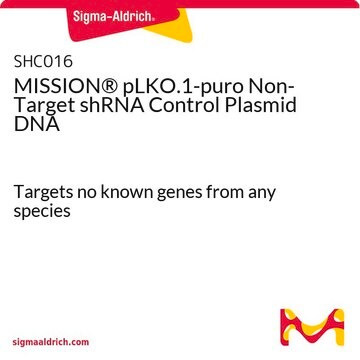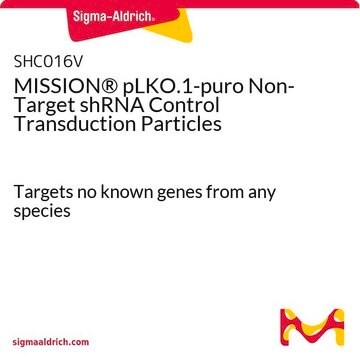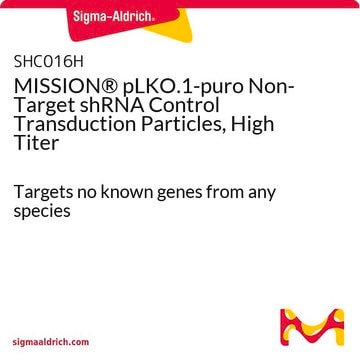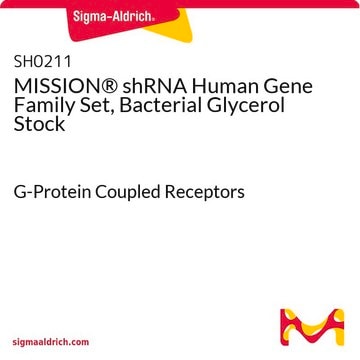SHC001V
MISSION® pLKO.1-puro Empty Vector Control Transduction Particles
Contains no shRNA insert
Sinónimos:
MISSION®, MISSION® Control Transduction Particles
About This Item
Productos recomendados
Quality Level
100
200
product line
MISSION®
concentration
≥1x106 VP/ml (via p24 assay)
technique(s)
capture ELISA: 106 TU/mL using p24
shipped in
dry ice
storage temp.
−70°C
¿Está buscando productos similares? Visita Guía de comparación de productos
General description
To see more application data, protocols, vector maps visit sigma.com/shrna.
Application
Legal Information
Optional
Storage Class
12 - Non Combustible Liquids
wgk_germany
WGK 3
flash_point_f
Not applicable
flash_point_c
Not applicable
ppe
Eyeshields, Gloves, multi-purpose combination respirator cartridge (US)
Certificados de análisis (COA)
Busque Certificados de análisis (COA) introduciendo el número de lote del producto. Los números de lote se encuentran en la etiqueta del producto después de las palabras «Lot» o «Batch»
¿Ya tiene este producto?
Encuentre la documentación para los productos que ha comprado recientemente en la Biblioteca de documentos.
Los clientes también vieron
Artículos
Small interfering RNAs (siRNAs) are powerful tools for gene expression knockdown, widely used in molecular biology.
Small interfering RNAs (siRNAs) are powerful tools for gene expression knockdown, widely used in molecular biology.
Small interfering RNAs (siRNAs) are powerful tools for gene expression knockdown, widely used in molecular biology.
Small interfering RNAs (siRNAs) are powerful tools for gene expression knockdown, widely used in molecular biology.
Protocolos
Detailed procedure for how to perform a lentiviral transduction of MISSION shRNA lentiviral particles to achieve a stable long term silencing and phenotypic change.
Nuestro equipo de científicos tiene experiencia en todas las áreas de investigación: Ciencias de la vida, Ciencia de los materiales, Síntesis química, Cromatografía, Analítica y muchas otras.
Póngase en contacto con el Servicio técnico











